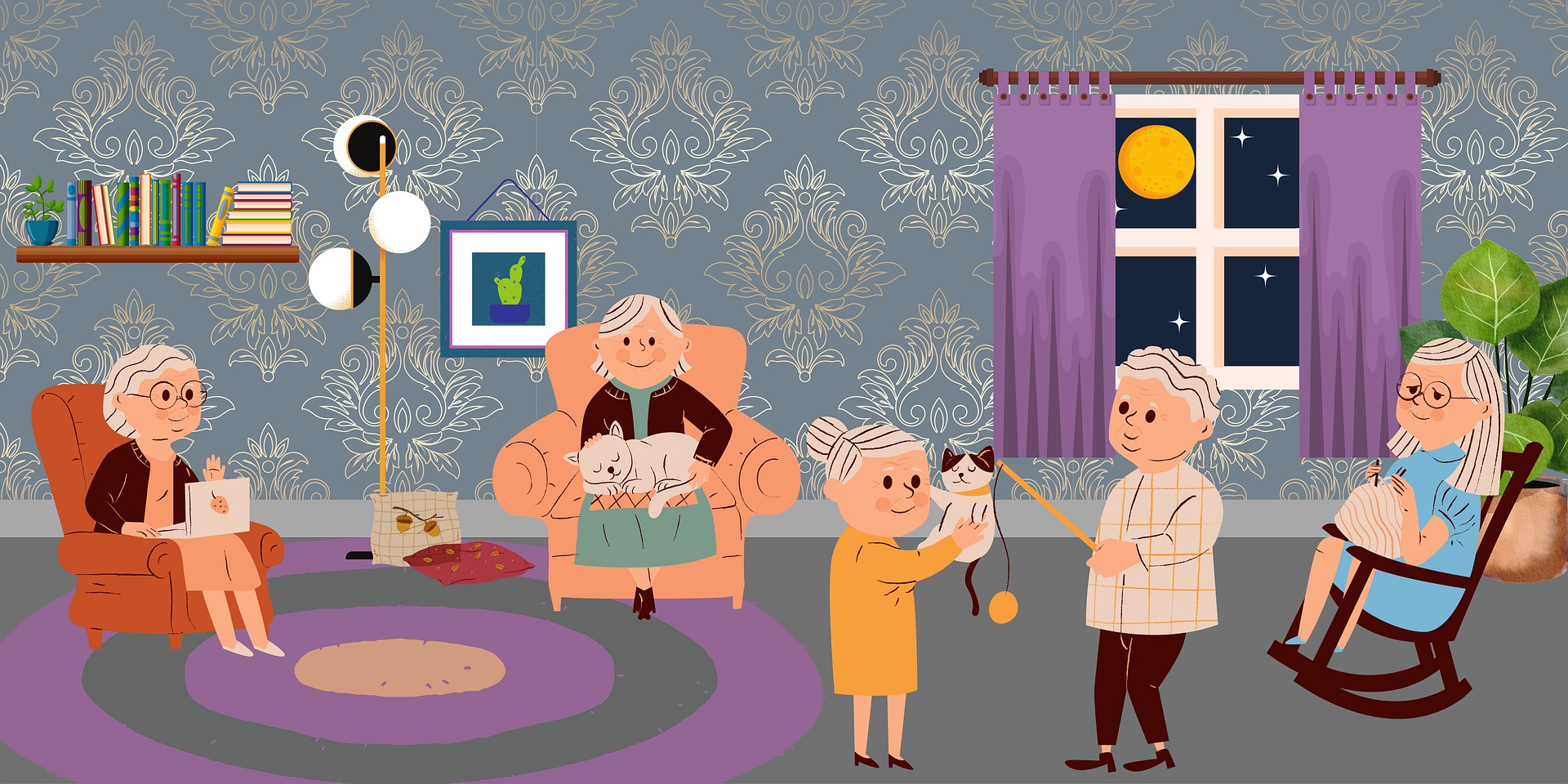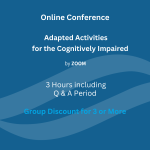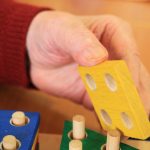
The Value of Doing Adapted Activities:
Adapted activities work wonders. They meet a basic need that allows you to have daily goals.
- Why would I want to shower if I don’t have anything to do in my day?
Doing activities contributes to a sense of identity. Playing a social role is a human need. This contributes to feeling useful.
- If everyone does for me, I am useless!
Doing activities reduces the risk of depression.
Dr. Evan Shelton, PhD, Center for Applied Research in Dementia:
The Four Rules to Respect in Proposing Meaningful Adapted Activities:
- An activity that promotes independence
Promoting independence means showing the person that you have confidence in them and their abilities.
Even if it seems faster for us to do it for them, the goal is not to do things for the person. By doing it for him, you take away the possibility of maintaining certain abilities or learning new ones.
Instead, position yourself as a facilitator. Prepare the environment in advance. Look at their preserved capacities to determine what they can still do, and then allow them to do it.
- An activity that makes sense
Proposing an activity that makes sense requires taking an interest in the person being accompanied, getting to know them, and discovering what is important to them.
A meaningful activity is not meant only to occupy the individual. We want the person to achieve something as a result of his actions—to be useful.
- An activity that offers a sense of control
It is important to ensure that each interaction you have with the person being accompanied offers them an opportunity to make a choice.
Even if you don’t offer a wide range of choices, it will give the person the feeling of being involved in decisions that affect their daily life.
- An activity in an adapted environment
Even though you are not doing it for the individual, you will still need to be helpful. “Help me do it alone” must be the principle that guides us the most when accompanying a person with cognitive difficulties.
We need to provide them with everything they need to accomplish their goal.
What are the benefits of adapted activities?
Giving someone the freedom to express themselves and respecting their decision to do things that you (and most likely they) no longer believe they are capable of accomplishing results in a tremendous improvement in one’s wellness.
This includes a tendency to act more independently, an improvement in self-esteem, and a decline in responsive behaviors.
How to put this into practice?
Always rely on what has actually been observed:
Is the person actually incapable of doing this, or do I just think he can’t do it? Maybe they could help with everyday tasks you hadn’t thought of.
If a person who has no interest in art or creative hobbies is asked to draw and I observe a lack of concentration, agitation, or wandering, I have to ask myself if this is due to illness or just a bad choice of activity.
Always offer the person a minimum of two choices. You’ll see that they’ll probably be able to choose. If they really are not able to choose due to the illness, then perhaps you could offer a simple choice of doing it or not doing it at all.
If the individual cannot achieve something that they used to enjoy doing, perhaps you can better organize the environment to make it possible for them.
“Helping those who are looking for activities and cannot find them.”
~ Maria Montessori, M.D.
Click here for information about our Conference about Adapted Activities.
Click here for information about our Certified training programs.





